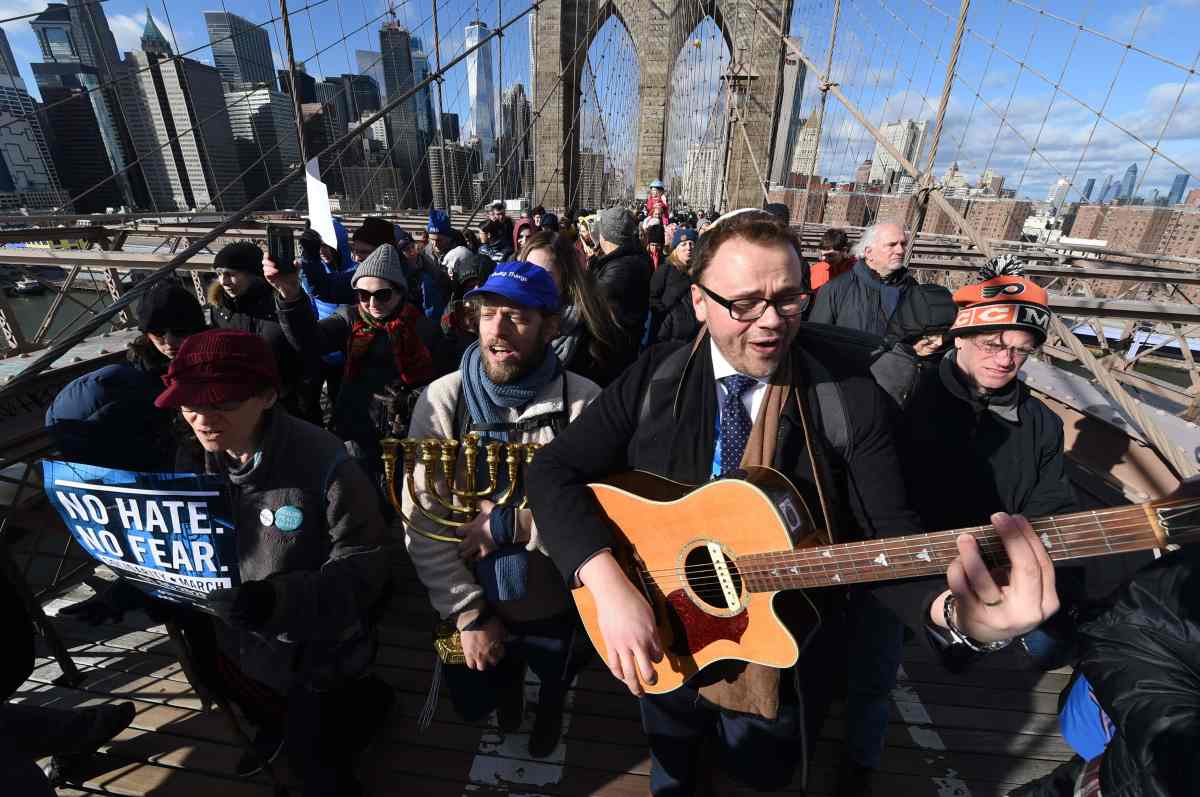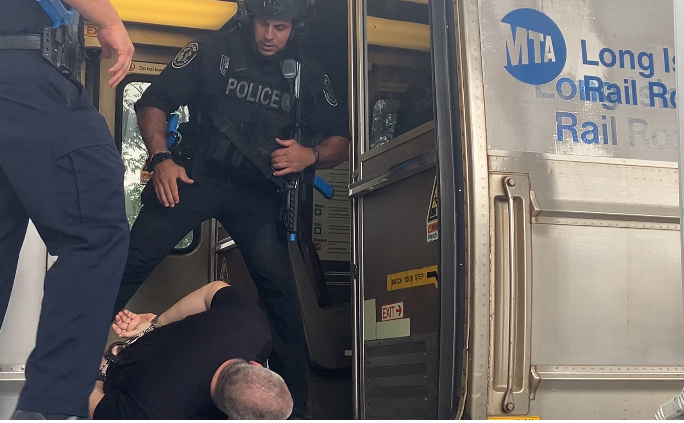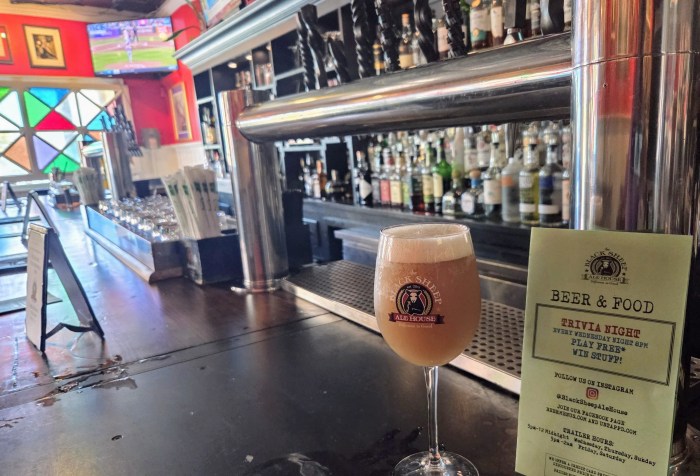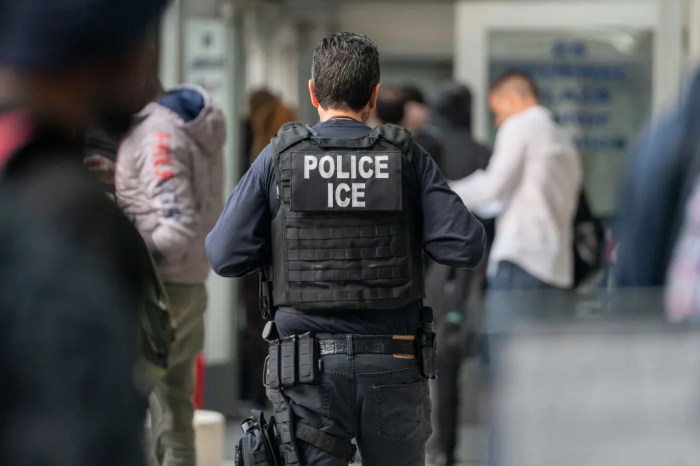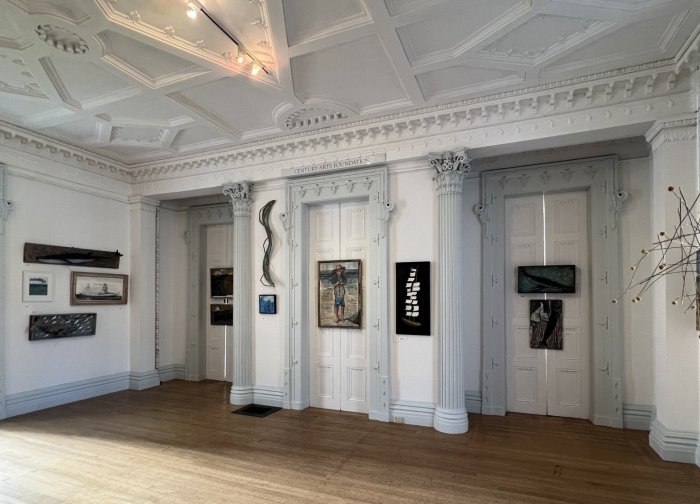At age 15, Yetta Zimmer repeatedly snuck through the barbed wire of a concentration camp in Poland during World War II. She begged for food, then snuck back in to help feed her captive parents and three sisters.
Seventy-five years after being freed at the war’s end in 1945, the 92-year-old Holocaust survivor, Romanian immigrant, and widowed grandmother now living in Commack shares her harrowing story with a reporter for the first time. But she remains reluctant to have her photo published out of fear that anti-Semites might target her for speaking out.
“The picture of that day I never forget,” she says through tears while recalling soldiers forcing her family to leave their home in Romania after her mother refused her father’s calls to escape before the Nazis arrived in 1940. “We went through walking hell … I was lucky they didn’t kill me.”
Turns out her fears of anti-Semitism persisting nearly a century after the Nazis killed 6 million European Jews in the Holocaust are not unfounded. The FBI found a 40 percent increase in anti-Jewish hate crime reports nationwide — from 609 to 835 — between 2014 and 2018, the most recent year that national data is available.
More recent local high-profile hate crimes have many on edge. Incidents include a spate of anti-Semitic assaults in Brooklyn’s Orthodox Jewish community, a suspect allegedly stabbing five people at a rabbi’s house during a Hanukkah party in surburban Rockland County, and racist graffiti and swastikas found at the Holocaust Memorial and Tolerance Center of Nassau County in Glen Cove — weeks before the museum hosts an International Holocaust Remembrance Day event on Jan. 26.
“As a historical institution charged with the responsibility of educating about the hatred that led to the Holocaust, we are deeply aware of the fear these incidents create in the Jewish community, particularly among Holocaust survivors and their families, and the dangers that these acts of anti-Semitism pose to the broader society,” the Holocaust center said in a statement. “We ask all Long Islanders to stand together in a collective call for safety, unity, and tolerance.”
The incidents prompted Nassau and Suffolk county leaders to join with the center in December to form an anti-bigotry coalition dubbed the Islandwide Task Force Against Anti-Semitism and Symbols of Hate. And a week after thousands of people packed the streets of Manhattan for the No Hate. No Fear. Solidarity March against Anti-Semitism on Jan. 5, Long Islanders are holding a follow-up march in Mineola on Jan. 12.
“We will be neither silent nor complacent in the face of this horrifying rise in anti-Semitic attacks,” said Nassau County Executive Laura Curran. “Together, Long Islanders of all faiths and backgrounds will march in solidarity with our Jewish community to make clear that an attack on one of us is an attack on all of us.”
The march is expected to draw Long Islanders from across the region.
“The ugliness of anti-Semitism and bigotry have no safe haven on Long Island,” said Suffolk County Executive Steve Bellone. “We will continue to stand united, marching side by side, rejecting anti-Semitism whenever it rears its ugly head and sending the message loud and clear that we are a hate-free community which embraces and promotes diversity.”
Jewish leaders say enough is enough.
“We will not be intimidated,” says Rabbi Anchelle Perl, director of Chabad of Mineola. “We will not be defined by anti-Semitism. The arc of history will ultimately bend towards tolerance and understanding between people.”
Of course, for those who’ve seen the worst of history’s anti-Semitism, that may be harder to believe.
“It’s terrible that picture, I never forget,” says Zimmer, the Holocaust survivor. “I been through hell.”




